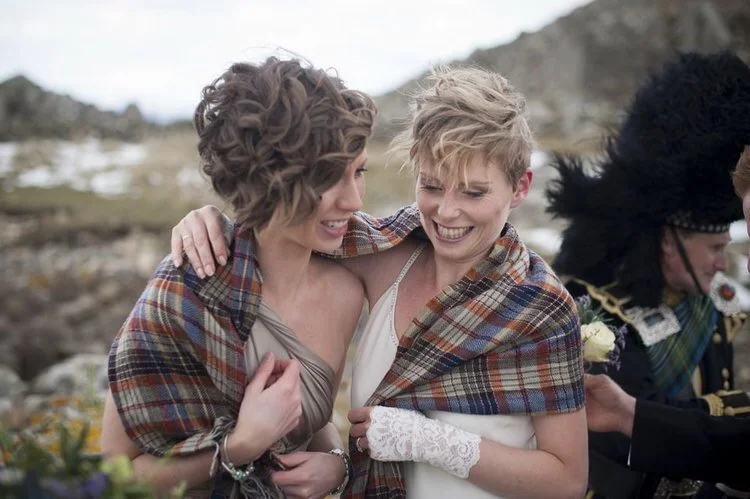Relationships - The Hope
When we are born into the world, our need for relationships is innate and essential for our survival. We need others to want relationships with us so that we are fed, changed, watered and feel contact. We need attachments particularly, to help our little brains and systems grow and moderate themselves; to sooth our feelings of helplessness. Then we grow and our relationships become much more complex.
By early 30’s, it is likely that we have loved and lost and sometimes have chosen to walk away from relationships that no longer meet our needs; in the past, I have realised that the dynamics of relationships are actually quite negative and leave me with an unwanted pay-off. Why would these changes happen?
Relationships work for numerous reasons, they may work because at that point in your life i.e. at college, you have subjects and friends in common and when all this goes, so does the relationship. Some relationships work, similar to that already mentioned, because you’re in close proximity and this makes the relationship less effort; should there be physical distance, I imagine the relationship too becomes distant; and perhaps extinct. Arguably, the most difficult of changes is when you ‘grow apart’. Someone once told me, when I was in my late teens/early twenties, ‘you may think you know who you are now; when you’re 30 you’ll realise you didn't know you very well at 20 and when you’re 40, you’ll realise you didn't know yourself very well at 30’. I think the point they were trying to make is that we are forever evolving; our life position and circumstances are not constant and we mold and adapt – change is the result. When I was in my late teens/early twenties, I didn't want to accept what my Auntie told me, I even thought she was patronising me but I hold my hands up – I have actually thought that.
Inevitably, life hasn't been smooth – when is it ever smooth? Many of the rocky roads have definitely altered my perception of me and my choices; for the better. My personal therapy journey has without a shadow of a doubt played the most significant role in my awareness of who I am and what I want; my life improved and I left some relationships behind. I thought therapy was hard, but fantastic.
More recently I went away for a week with someone I have been friends with since I was 12/13 years old. Mostly best friends at school, but sometime not, we lost contact when we both went to college. There were a few occasions we spent time together but we seemed more like acquaintances than friends. She got married and I had an invite; I understand now, that we always were friends; my concept of what friends was, had changed. We still didn't spend much time together at all and soon, she was divorced. Cutting the finer details out, we were in touch again and whereas I was in a therapeutic journey; Lisa then began her journey of love and travelling the world.
Why am I telling you this? Well whilst we were away I was in awe of how close we were after not spending anymore than a day together, perhaps 3 or 4 times a year at most; for the last 15 years. We were away and didn't watch the TV once (well I lie, for old times sake one night; we watched The Fly and a Michael Jackson DVD). Although we had been apart for so long and been through highs and lows without each other, we had both found a journey, we had both changed massively, but still fitted together, like we did when we were 13. On reflection of the friends I had, I had an overwhelming sense that friendships like ours are special.
It gets me thinking about relationships as a whole; how much people are willing to give, sacrifice and discount themselves to belong and to have an attachment. What relationships mean to people; for those who expect respect, those who view themselves as an active or passive player and for those who see relationships as dangerous and painful. On one level, many will hear the words ‘communication is key’ and agree and some of those who agree will not know how to, will be afraid to or are not in the position to communicate. Good, bad, positive, damaging – however people think about relationships; we all need them.
If it’s possible to have such an open and accepting relationships such as mine and Lisa’s, why do we have less healthy relationships? I‘m going to explain my thoughts about this, focusing on the theory of transactional analysis (TA), as when my relationships started to change – this was my major influence. TA suggests that we develop a perception of people, the world and ourselves at a really young age. These decisions about how we fit in the world and are accepted by people form part of our story; like a play, our story has a theme and like an actor we play the part. When we are children we need to rely on our caretakers for survival, although we can manage certain parts of our self care, we need our caretaker’s approval and acceptance to get out needs met. For this reason, the types of relationships we become accustomed to are significant; significant at the time and have a significant impact on our prospective relationships.
I’m making it sound a little more black and white than it really is I think but I’m trying to give an overview rather than write a text book; if this interests you, please use the links in the page to read further. In early childhood, if you experience a relationship that is supportive, balanced and has positive communication; the likelihood is that as a child your world will be safe and encouraging and as an adult these decisions about the world, people and how you fit will mean you seek those that can be part of your play with you; who’s script fits with yours. The same is for the reverse scenario; for some people relationships really are scary, they mean that you have to give all of yourself without anything in return and sometimes love means pain. Childhood isn't supportive and balanced for everyone, some children learn that relationships have a significant cost, that to be seen or accepted they have to behave in certain ways or in relationships you do as you are told. Decisions in childhood, about how things and people work is imperative for survival and children are so creative at finding ways to live in difficult environments. Unfortunately, the play that was written in childhood, their script, runs into adulthood and those adaptive, protective strategies that once were so important for survival, become unnecessary. They’re unnecessary because as adults we have much more resources to draw upon, we can make decisions on our own and we can leave…..but. Unless the adult has had chance to recover from negative experiences, had the opportunity to become aware of their scrip and thus re-write or change it, their survival strategies in relationships will remain the same. Furthermore, the kinds of relationships they are likely to seek (subconsciously) will be those that are familiar to their early script.
It’s seems so easy for some to say ‘why the hell would you put up with that’ or ‘don’t you see they’re playing you for a fool’ and they find it hard to accept it when someone says ‘I need them’ or ‘I know they love me, it’s not always like that’ and ‘I don’t want to be without them’. It’s not ignorance on either part; we just know what we know; unless we learn different.
Relationships are important to me personally and they interest me professionally; as human beings, we need them. If you struggle with relationships or a specific relationship and you have connected with some of what I have written, or you’d like to explore another avenue ( as the one I have used is just one) please feel free to get in touch or here are some other local services that you may wish to try.
Relate - Relate offers advice, relationship counselling, sex therapy, workshops, mediation, consultations and support face-to-face, by phone
NHS - Other psychological therapies include psychotherapy, cognitive behavioural therapy (CBT) and relationship therapy (which could be between members of a ...
Hull Women’s Aid - Hull Women's Aid (HWA) is the sole provider of safe and secure refuge accommodation on the north bank of the Humber for women and children fleeing domestic abuse…

